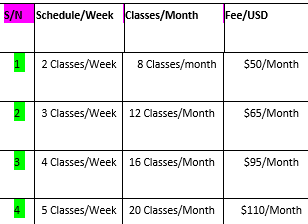Inna and its Sisters in the Arabic Language
(إنَّ وأخواتها)
By: Yusuf Basirat Bolanle
In
our previous lesson, we discussed
(كان) Kaana and its sisters, we defined them as a set of verbs that are working with Nominal Sentence consisting of (المبتدأ)The Subject and (الخبر)
the Predicate, thereby changes the subject parsing mark into ad-damah
called (اسمه) its
Noun, and the predicate parsing mark to
al-fatha
known as (خبره)
Its Predicate.
Today, InshaAllah, we shall discuss
(إنَّ وأخواتها) Inna and its sisters which have totally
grammatical
opposite effects of Kaana and its sisters
in Arabic Sentences.
(إنَّ وأخواتها)
(Inna and Sisters)
Inna and its sisters are sets of
particles that are also working with Nominal Sentence comprised of (المبتدأ) The Subject and (الخبر)
The Predicate, just like Kaana and its sisters. However, Inna and its
sisters give the accusative case to the subject and nominative case to the
predicate as opposed to Kaana and its sisters.
Inna and its sisters, when enter into a Nominal sentence consist of The Subject and The Predicate, The first one, which is the subject takes An-nazb sign, which is al-fatha and it is called (اسمه), its noun, while the second one, which is the predicate will be given ar-raf’u sign ad-dammah, and it is called (خبره) its predicate.
The
following Particles are regarded as Inna and its sisters:
- (إِنَّ) Inna
- (أنَّ) Anna
- (كَأَنَّ) Kaanna
- (لَكِنَّ) Laakinna
- (لَيْتَ) Laita and
- (لَعَلَّ) La’alla
Now, let us discuss each of the particles with examples in sentences.
(Inna) إِنَّ
The first of Inna and its sisters is (إنَّ) Inna itself. Inna means “surely” or “indeed” or “verily.”
Examples
الْوَلَدُ صَغِيرٌ
The Boy is small
إنَّ الوَلَدَ صَغِيرٌ
Surely, The Boy is small
..............................................
الْبَيْتُ جَمِيلٌ
The house is beautiful
إنَّ البيتَ جميلٌ
Surely, the house is beautiful
..............................................
الْحِصَانُ سَرِيعٌ
The horse is fast
إنَّ الحصانَ سريعٌ
Surely, the horse is fast
..............................................
الْمَسْجِدُ بعيدٌ
The mosque is far
إنَّ المسجدَ بعيدٌ
Surely the mosque is fast
..............................................
أنَّ (Anna)
The second of the sisters of Inna is (أنَّ), Anna means “That”
Examples
الْوَلَدُ
صَغِيرٌ
The boy is small
سَمِعْتُ أنَّ الولدَ صغيرٌ
I heard that the boy is small
..............................................
الْبَيْتُ جَمِيلٌ
The house is beautiful
وجدت أنَّ البيتَ جميلٌ
I found that the house is beautiful
..............................................
الْحِصَانُ سَرِيعٌ
The horse is fast
يسرُّنى أنَّ الحصانَ سريعٌ
It makes me happy that the horse is fast
..............................................
الْمَسْجِدُ بعيدٌ
The mosque is far
أعجبنى أنَّ المسجدَ بعيدٌ
I am surprise that the mosque is fast
..............................................
(Kaanna) كأنَّ
The third of these sisters is (كأنَّ), Kaanna means “Is like”
Examples
الْوَلَدُ صَغِيرٌ
The boy is small
كأنَّ الولدَ صغيرٌ
is like the boy is small
..............................................
الْبَيْتُ جَمِيلٌ
The house is beautiful
كأنَّ البيتَ جميلٌ
Is like the house is beautiful
..............................................
الْحِصَانُ سَرِيعٌ
The horse is fast
كأنَّ الحصانَ سريعٌ
Is like the horse is fast
..............................................
الْمَسْجِدُ بعيدٌ
The mosque is far
كأنَّ المسجدَ بعيدٌ
Is like the mosque is far
..............................................
(Laakinna) لَكِنَّ
The next one is (لَكِنَّ), Laakinna means “But”
Examples
الْوَلَدُ صَغِيرٌ
The boy is small
الأبُ كَبِيرٌ لَكِنَّ الولدَ صغيرٌ
The father is old but the boy is small
..............................................
الْبَيْتُ جَمِيلٌ
The house is beautiful
الأَثَاثُ قديمٌ لَكِنَّ البيتَ جميلٌ
The furniture is old but the house is beautiful
..............................................
الْحِصَانُ سَرِيعٌ
The horse is fast
الرَّجُلُ زَكِيُّ لكنَّ الحصانَ سريعٌ
The man is smart but the horse is fast
..............................................
الْمَسْجِدُ بعيدٌ
The mosque is far
الْبَيْتُ قَرِيبٌ لكنَّ المسجدَ بعيدٌ
The house is near but the mosque is far
..............................................
(Laita) لَيْتَ
Another of the Inna sisters is (لَيْتَ), Laita means “If only”
Examples
الْوَلَدُ صَغِيرٌ
The boy is small
ليت الولدَ صغيرٌ
If only the boy is small
..............................................
الْبَيْتُ جَمِيلٌ
The house is beautiful
ليت البيتَ جميلٌ
If only the house is beautiful
..............................................
الْحِصَانُ سَرِيعٌ
The house is fast
ليت الحصانَ سريعٌ
If only the horse is fast
..............................................
الْمَسْجِدُ قريبٌ
The mosque is near
ليت المسجدَ قريبٌ
If only the mosque is near
..............................................
(Laala) لَعَلَّ
The last of the sisters of Inna is (لعلَّ), which means “Perhaps” or “May be”
Examples
الْوَلَدُ صَغِيرٌ
The boy is small
لعل الولدَ صغيرٌ
Maybe the boy is small
..............................................
الْبَيْتُ جَمِيلٌ
The house is beautiful
لعل البيتَ جميلٌ
Maybe the house is beautiful
..............................................
الْحِصَانُ سَرِيعٌ
The horse is fast
لعل الحصانَ سريعٌ
Maybe the horse is fast
..............................................
الْمَسْجِدُ قريبٌ
The mosque is near
لعل المسجدَ قريبٌ
Maybe the mosque is near
..............................................
Discussion and Explanation
The first set of sentences in the above examples consist of (المبتدأ) The Subjects and (الخبر), The Predicates. They are both in Nominative cases ending with ar-raf’u sign. But if we look into the second set of sentence with the same examples, we discover that they consist of one of the Inna and its sisters.
Then, if we look at the end of the nouns in the second set of sentences, we found out that the first noun takes al-fatha and the second one takes ad-dammah.
This means inna and its sisters when come before the subject and the predicates,
the first one takes al-fatha and it is called its noun, and the second one takes
ad-dammah and it is called its predicate.
Note: Inna and its sisters are similar to Kaana and its sisters but they have the grammatical opposite effects.











0 Comments